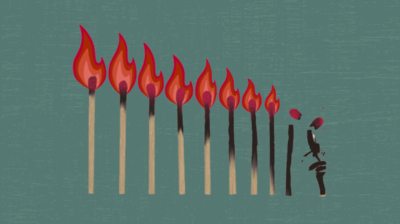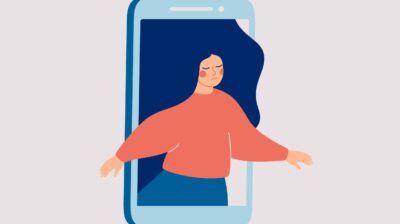I didn’t think burnout could happen to someone like me
I used to think burnout was something that only happened to older people with high-stress jobs. People with big titles, long hours, and too many responsibilities. I never thought it could look like me.

I used to think burnout was something that only happened to older people with high-stress jobs. People with big titles, long hours, and too many responsibilities. I never thought it could look like me.
Burnout crept in through pressure and perfectionism
The truth is, I have now realised I’ve felt burnt out in different ways at different points in my life: in school, extracurriculars and even in activities I used to enjoy. It crept in slowly through perfectionism, pressure to keep up and fear of letting people down. I said yes to everything, every opportunity, every responsibility, because I thought that’s what success looked like.
Later, in medical school, it followed me. The long hours, the constant pressure to perform, to stay “on top of it all.” I convinced myself that being tired, overwhelmed, and emotionally numb was just part of the deal. But deep down, I wasn’t okay.
At first, I thought it was just stress—something I had to push through. I told myself to be grateful, to work harder, and to stay focused. But slowly, the things that used to motivate me started to feel heavy. I stopped enjoying what I used to love. I kept going but felt disconnected from why I was doing any of it.
It wasn’t one big breakdown. It was more like a slow fading of energy, of excitement, of connection. And the worst part was thinking I was the only one feeling this way.
Burnout in college isn’t always loud
That’s when I started to understand that burnout doesn’t always look the same. For some people, it might be loud and obvious anger, frustration, or exhaustion you can’t hide, but for me, and many others, it’s quieter. It shows up as silence, withdrawal, and isolation. There’s no one way to experience burnout, but recognising your signs early is critical.
Since then, I’ve been learning to listen to my body and mind, checking in with myself regularly. I’ve started setting boundaries and making time for breaks, even when life feels overwhelming.
Learning to spot burnout and set boundaries
Recovery from burnout doesn’t follow a medical script. It’s a story about learning to live with it, to spot it before it takes over, and to treat myself with more kindness when it does.
Taking a step back doesn’t mean I’m giving up or that I’m not committed to my goals. It means I’m making sure I can keep moving forward, in a way that’s healthy and sustainable.
Burnout is real, but you’re not alone
As you read this, you may recognise some of these feelings. You must know that you’re far from alone. Burnout is common among young people around the world. A 2023 study by Harvard Graduate School of Education found that more than a quarter (27%) of adolescents reported struggling with burnout, overwhelmed by stress from school, work, and life’s demands.
These numbers are real people. Young people like you and me. Struggling. It shows us that burnout is a shared experience, which means we don’t have to face it alone.
If you’re reading this and something resonates, please don’t wait. It’s okay to pause. It’s okay to ask for help. It’s okay to put yourself first, even when it feels like the world demands everything from you.
Your health and well-being are not optional. They are essential.
Feeling overwhelmed and want to talk to someone?
- Get anonymous support 24/7 with our text message support service
- Connect with a trained volunteer who will listen to you, and help you to move forward feeling better
- Whatsapp us now or free-text SPUNOUT to 50808 to begin.
- Find out more about our text message support service
If you are a customer of the 48 or An Post network or cannot get through using the ‘50808’ short code please text HELLO to 086 1800 280 (standard message rates may apply). Some smaller networks do not support short codes like ‘50808’.






